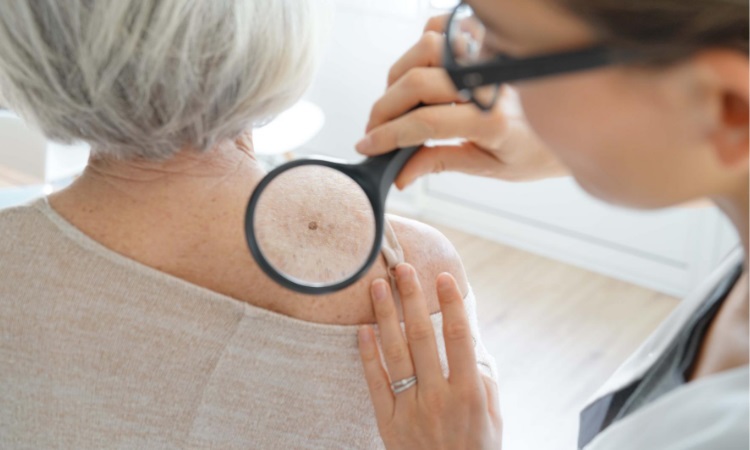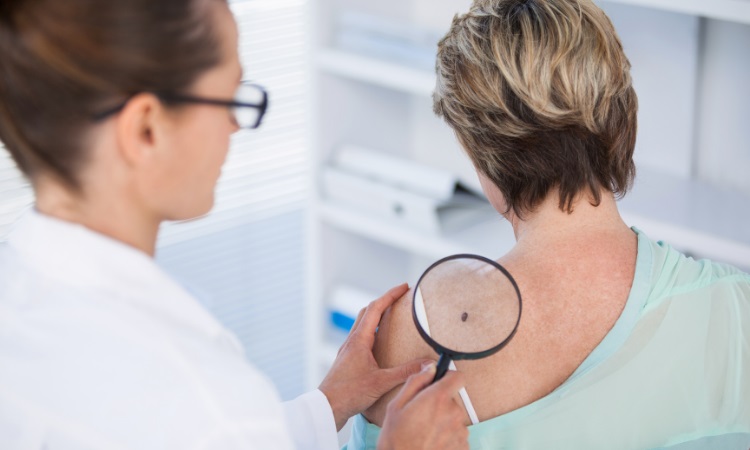Almost all of us have odd spots or marks on our skin, and most cause no harm. However, some unusual spots can be a sign of skin cancer. When caught early, skin cancer responds well to treatment. Regular skin cancer screenings will make sure no potential problems go unnoticed.
What is Skin Cancer?
Skin cancer occurs when cells in different layers of the skin begin to divide abnormally. Basal and squamous cell carcinomas grow slowly and rarely invade other tissues but can cause problems. Melanoma, a cancer of the skin cells that make pigments, is the most potentially dangerous type. If caught early, all skin cancers are 99% treatable.



